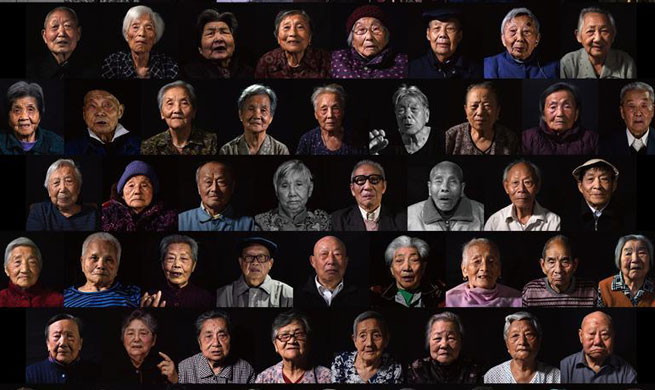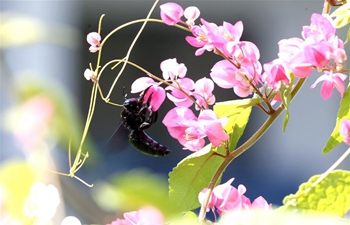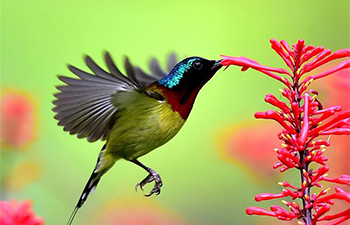CHICAGO, Dec. 12 (Xinhua) -- Harnessing competition among pathogens inside a patient could extend the life of existing drugs where resistance is already present and prevent resistance to new drugs from emerging, a study of the University of Michigan (UM) found.
The researchers manipulated a nutrient in the drinking water of mice that is used by malaria parasites during an infection. This dietary intervention was used alongside traditional drugs as a sort of combination therapy.
"We treated mice infected with drug-sensitive malaria parasites with traditional drugs," said lead author Nina Wale, a UM postdoctoral researcher. "When mice were given the nutrient, the treatment failed in 40 percent of the mice, and we confirmed by a variety of tests that this was because drug-resistant strains had popped up. But when the nutrient was limited, the infection did not rebound in a single mouse. So by limiting this nutrient, we prevented the emergence of drug resistance."
The researchers then confirmed that their results were due to competition among parasites and not some other effect of limiting the nutrient. When drug-treated mice were infected only with resistant strains and the nutrient was limited, the resistant parasites survived.
But when drug-treated mice were infected with both sensitive and resistant parasites, limiting the nutrient stopped resistant parasites from growing at all, even when resistant parasites were initially present at far greater numbers than when they typically first appear in a host.
The study was published in Proceedings of the National Academy of Sciences on Monday.
This work suggests a new direction of study that would allow researchers to capitalize on the natural competition between pathogens to control the emergence of drug resistance.
For infections like tuberculosis and malaria, where drug-resistant strains to traditional drugs already exist, researchers must next identify a resource or nutrient for which drug-resistant strains have greater needs than sensitive strains, confirm that limiting the resource would lead to the elimination of resistant strains, determine the most effective intervention strategy to remove the resource, and pinpoint the ideal timing of the intervention. For an infection where a new drug is being developed, these questions could be addressed during the drug development phase.
The initial cost of such development would increase, but after that relatively small initial investment, the lifetime of a drug would be extended, so the payoff could be quite big, the researchers hold.
Drug resistance originates when a pathogen, say a parasite, virus or bacterium, develops a genetic mutation that allows it to avoid being killed by the drug. Drug resistance is hindering efforts to control HIV, tuberculosis and malaria, which collectively kill nearly 3 million people worldwide every year. It also complicates recovery from major surgeries and cancer chemotherapy.

















